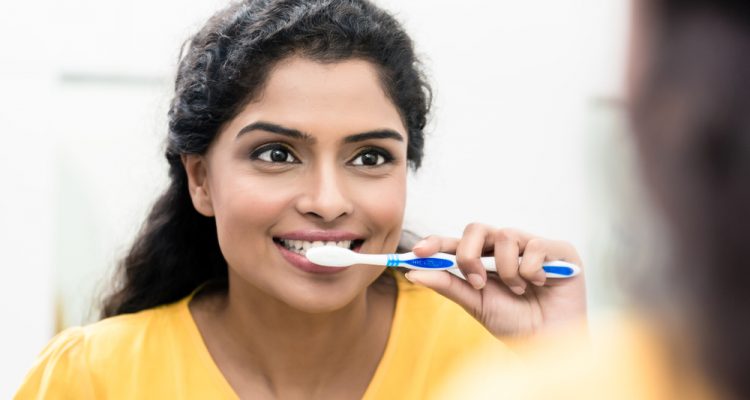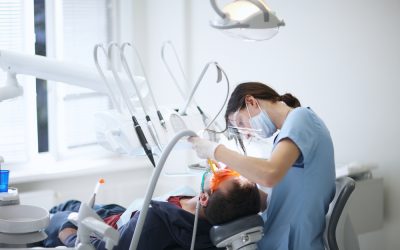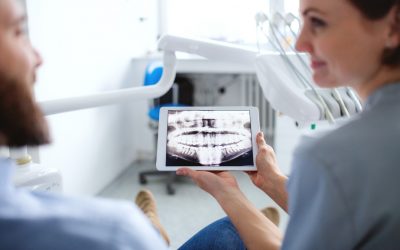October is National Dental Hygiene Month, and today Boyett Family Dentistry is here to provide information on one of the best ways to prevent the development of tooth decay and gum disease: brushing your teeth. Brushing your teeth removes food particles and plaque from your mouth and stops plaque from breaking down tooth enamel and causing cavities. Plaque that builds up around and under your gum line can lead to gum disease.
While you may already know that brushing your teeth is essential for good oral health, you may have questions on how many times a day you should be brushing, and how long for each time. First and foremost, how you brush is more important than how often you brush. You should use a soft-bristled toothbrush and fluoridated toothpaste to gently clean all sides of your teeth, gum line, tongue, cheeks, and roof of the mouth. You don’t need to use a lot of force – aggressive, hard brushing can erode tooth enamel and irritate the gums.
The American Dental Association (ADA) has guidelines for proper brushing technique. Additionally, you should ask your dentist to demonstrate correct brushing the next time you have a dental appointment.
Although technique is the most important aspect of toothbrushing, how often and how long you brush your teeth affect your oral health too. Here, we’ve answered the most important questions surrounding toothbrushing frequency.
How Often Should You Brush Your Teeth?
The American Dental Association (ADA) recommends brushing your teeth twice a day. Many people choose to brush their teeth once in the morning and once before bed. Brushing your teeth before bed is a good idea, because if you go to sleep with leftover food particles, sugars, and acids in your mouth, there is nothing to disrupt plaque from forming on your teeth throughout the night.
How Long Should You Brush?
According to the ADA, you should be brushing your teeth for two minutes each time you brush – a length of time many people don’t reach in their morning rush to get out the door, or in the last tired moments before bed. In 2009, a study published in The Journal of Dental Hygiene revealed that average brushing time was forty-five seconds, well below the two-minute recommendation. The study set out to determine if brushing time had an impact on plaque removal and found that brushing for two minutes removed 26% more plaque than brushing for forty-five seconds.
If you need help reaching the two-minute goal, spend a few days setting a timer while you brush your teeth, until you know how long two minutes feels like.
Should You Brush Your Teeth After Every Meal?
While some dentists recommend brushing after every meal or snack, many dental professionals agree that brushing your teeth more than twice a day is not necessary for good oral health. You should consider brushing more often if you have a condition that needs extra care – such as a history of gum disease, braces or other dental hardware that makes proper cleaning difficult, or a tendency to eat numerous sugary or acidic snacks during the day.
If you consume an acidic meal or drink, don’t brush your teeth directly afterward. Acids weaken tooth enamel and brushing while your mouth is still acidic could cause pieces of enamel to flake off. Wait a half hour to an hour before cleaning your teeth.
How Often Should You Get Professional Cleanings?
In addition to home care, regular professional cleanings and exams are an important part of good oral health care. A professional cleaning will remove hardened plaque (tartar) that your toothbrush can’t scrape off. Additionally, your dentist will examine your mouth and teeth for signs of tooth decay and gum disease.
You should schedule professional cleanings twice a year. If you have a history of gum disease or other oral condition, your dentist may want to see you more regularly. Your twice-yearly appointments are also a good opportunity to make sure you’re brushing your teeth correctly, for the right length of time.
If it’s time for your next cleaning or exam, contact Boyett Family Dentistry today to schedule your appointment.






